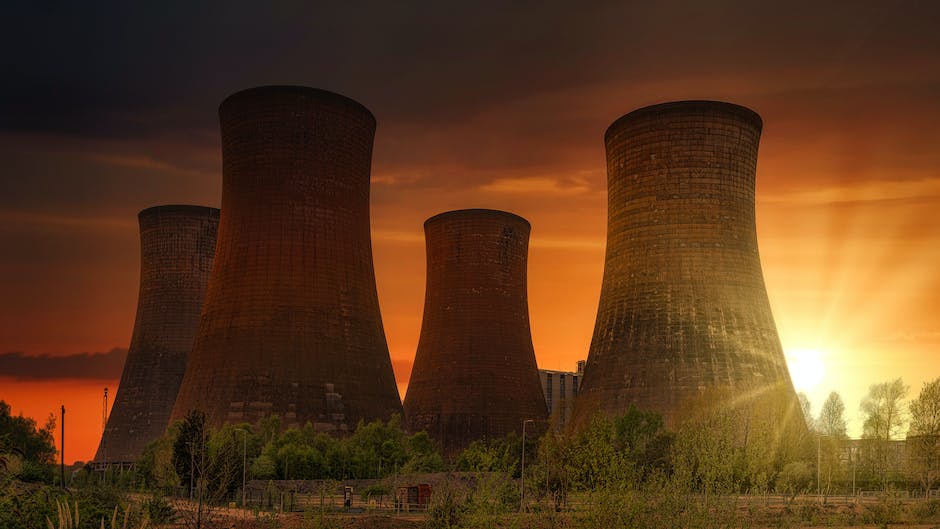The pros and cons of nuclear energy
Exploring the benefits and drawbacks of nuclear power
Nuclear energy, often hailed as a sustainable and efficient energy source, has both proponents and detractors. Proponents argue that nuclear power is a viable solution to reduce carbon emissions and mitigate climate change. On the other hand, detractors raise concerns about the environmental and safety risks associated with nuclear energy production. In this article, we'll explore the advantages and disadvantages of nuclear energy to provide a comprehensive view of its impacts and implications.
Nuclear power plants harness the energy released from nuclear reactions to generate electricity. The process involves nuclear fission, wherein the nucleus of an atom splits into smaller parts, releasing a significant amount of energy. This energy is then used to heat water, produce steam, and drive turbines that generate electricity. While nuclear energy has the potential to meet a large portion of global energy demand, its adoption is accompanied by various challenges and benefits.
Pros
Nuclear energy offers several compelling advantages that make it a desirable option for power generation. From its low carbon footprint to its high energy density, nuclear power has the potential to address the growing energy needs of the world. Let's delve into the advantages of nuclear energy and understand its positive implications for the environment and society.
Base Load Power Source
Nuclear power plants can provide a steady and consistent supply of electricity, making them an effective base load power source. This stability can help meet the continuous demand for energy without fluctuations, contributing to grid reliability and energy security.
Low Greenhouse Gas Emissions
One of the primary advantages of nuclear energy is its low greenhouse gas emissions. Unlike traditional fossil fuel-based power plants, nuclear reactors do not produce carbon dioxide or other harmful air pollutants during electricity generation. As a result, nuclear power can play a crucial role in mitigating climate change and reducing the overall carbon footprint of the energy sector.
High Energy Density
Nuclear energy possesses an incredibly high energy density, meaning that a small amount of nuclear fuel can produce a substantial amount of energy. This characteristic makes nuclear power plants highly efficient in generating electricity, making them a feasible option for meeting the increasing global energy demand while minimizing resource consumption.
Reliable Power Generation
Compared to intermittent renewable energy sources such as solar and wind, nuclear power provides a consistent and reliable source of electricity. Nuclear plants can operate continuously for extended periods, offering a stable power supply that can support the base load requirements of modern societies, especially during peak demand periods.
Diverse Applications
Nuclear energy has diverse applications beyond electricity generation. It can be utilized for propulsion in the marine, space, and military sectors, as well as for desalination and industrial processes. The flexibility of nuclear energy makes it a valuable resource for various fields.
Missing a pro?
Let us know which pro you are missing!
Cons
While nuclear energy presents several advantages, it also carries inherent drawbacks and risks that have sparked debates and controversies. From the potential for catastrophic accidents to the long-term management of radioactive waste, the use of nuclear power raises critical concerns that cannot be overlooked. Let's examine the disadvantages of nuclear energy and weigh these aspects against its potential benefits.
Radioactive Waste Disposal
One of the most significant challenges associated with nuclear energy is the management and disposal of radioactive waste. The spent fuel and other radioactive byproducts from nuclear reactors remain hazardous for thousands of years, posing a substantial environmental and public health risk. The development of safe and secure long-term storage solutions for radioactive waste is a complex and unresolved issue within the nuclear industry.
Environmental Contamination and Public Health Concerns
In addition to immediate safety risks, nuclear accidents and routine operations can lead to environmental contamination and public health concerns. The release of radioactive materials into the environment can have far-reaching impacts on ecosystems and human health, necessitating comprehensive measures for monitoring, decontamination, and risk mitigation in affected areas.
High Initial Costs
The construction of nuclear power plants involves significant initial investment and can take several years to complete. The high capital costs associated with building and licensing nuclear facilities can pose financial challenges and uncertainties, impacting the feasibility of nuclear energy projects.
Limited Fuel Availability
The availability of nuclear fuel sources, such as uranium, is finite and geographically constrained. This limitation raises concerns about the long-term sustainability of nuclear energy, especially as global demand for energy continues to grow. Additionally, reliance on specific fuel sources can make the energy supply vulnerable to geopolitical factors.
Safety and Operational Risks
The operation of nuclear power plants carries inherent risks related to potential accidents and safety failures. Events such as meltdowns, core breaches, and radioactive releases can have catastrophic consequences, as evidenced by past incidents like the Chernobyl and Fukushima disasters. Ensuring the strict adherence to safety protocols and the prevention of human errors are critical challenges in the pursuit of nuclear energy.
Missing a con?
Let us know which con you are missing!
Conclusion
In conclusion, the utilization of nuclear energy presents a set of complex trade-offs encompassing its environmental, economic, and societal implications. While nuclear power offers a low-carbon energy alternative with high energy density and reliable power generation, it also poses substantial challenges in terms of radioactive waste management, safety risks, and environmental hazards. As the global energy landscape continues to evolve, the conversation around nuclear energy remains a contentious and multifaceted issue that necessitates a balanced consideration of its advantages and disadvantages.
What do you think?
Do you think the pros outweigh the cons?





